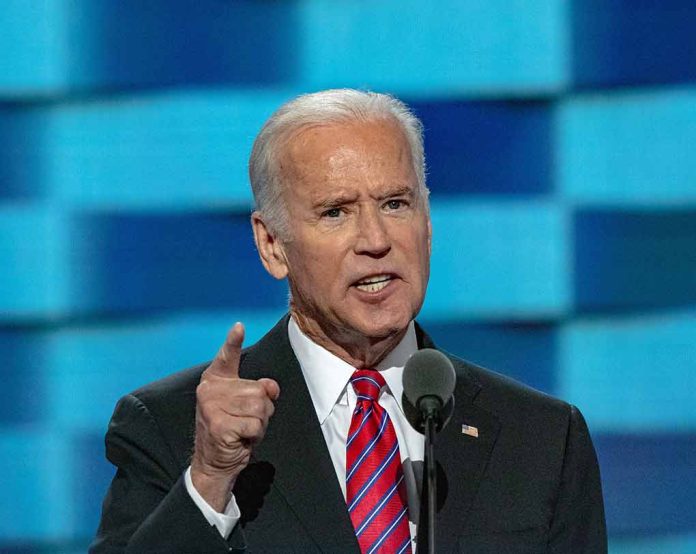
Biden’s recent pardon of Hunter Biden has stirred political controversy, challenging both integrity and justice.
At a Glance
- President Biden issued a full pardon for Hunter Biden, reversing prior commitments to avoid such actions for family members.
- Hunter faced charges for tax evasion and illegal gun possession, potentially facing over 40 years in combined sentences.
- Biden claims that his son’s prosecution was politically motivated; Hunter pledges to aid others facing addiction challenges.
- The pardon was issued after Thanksgiving, sparking accusations of favoritism and hypocrisy from political adversaries.
Hunter Biden’s Legal Challenges
Hunter Biden was previously convicted on tax-related charges along with illegal possession of a firearm as a drug user. Such charges could have resulted in significant prison time ranging up to 25 years for gun-related offenses and 17 years with a $1.35 million fine concerning his taxes. Despite these convictions, the President opted for clemency, claiming interference in the legal process stemmed from political biases due to familial relations.
During the trial, Hunter Biden’s previous relationships were scrutinized, highlighting his battles with addiction. The charges, revealed back in December 2020, came shortly after Biden’s election, fueling allegations of political motivation. Hunter’s alleged tax evasion included failing to pay $1.4 million and misclassifying personal expenses as business expenses.
SHOULD PRESIDENT BIDEN PARDON HIS SON? #TheView co-hosts question if one of Pres. Biden's final acts should be pardoning his son Hunter Biden, who was convicted on federal gun charges. pic.twitter.com/lDHeUnASFZ
— The View (@TheView) November 27, 2024
Political and Public Reactions
Critics point towards President Biden’s previous assurances to avoid unfair clemency for family members, expressing concerns over potential favoritism. The clemency decision contradicts statements made by the White House as recently as November 8, where a pardon was explicitly ruled out. Biden dismissed these claims, calling the legal actions faced by his son a “miscarriage of justice” and insisting that raw politics played a significant role in the process.
“From the day I took office, I said I would not interfere with the Justice Department’s decision-making, and I kept my word even as I have watched my son being selectively, and unfairly, prosecuted,” Biden said in a statement.
Hunter’s Response and Future Outlook
Hunter Biden expressed gratitude towards his father, promising to utilize his experiences to assist others grappling with addiction in the future. Having overcome significant personal challenges, Hunter aims to channel his newfound freedom in supporting individuals facing similar issues. The pardon encompasses offenses over a decade-long period, marking it as a comprehensive move by President Biden to shield his son from current and potential future prosecutions.
“I have admitted and taken responsibility for my mistakes during the darkest days of my addiction – mistakes that have been exploited to publicly humiliate and shame me and my family for political sport,” Hunter Biden has said.
The controversy surrounding the pardon reflects broader American concerns regarding fairness and ethics in the legal and political arenas. It remains to be seen how this act will impact President Biden’s standing with the electorate and whether this will lead to larger discussions on the scope of presidential pardon powers.





